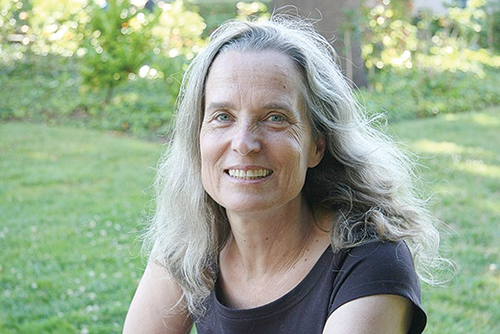
On paper, social justice’s definition is simple: “the distribution of advantages and disadvantages within a society.” In the real world, social justice takes on many different forms and philosophies.
There are entire programs and professions in it, and some people spend their entire lives fighting for social justice, which could be anything from helping the homeless to
gaining economic footing for women in third-world countries.
Susan Schweik, the associate dean of arts and humanities at the University of California, Berkeley, will come to campus this week to talk about social justice in regard to people with disabilities—people who have been denied rights or faced injustice in Portland and all over the world.
Schweik has dabbled in just about every discipline available to her. Her book Ugly Laws: Disability in Public explores the history behind the “ugly” laws that criminalize those with disabilities. Looking through the lenses of race, gender, class and nationality, Schweik uses every multidisciplinary muscle in her repertoire.
“In some ways moving between disciplines was freeing, for me and I think maybe for my readers as well,” Schweik said in an email. “I think that maybe disability studies is the most interdisciplinary field in the academy today. For me it simply does not make sense to use a very narrow range of tools and lenses to examine the issues raised where ‘disability’ is concerned.”
Schweik is giving both the lecture on “ugly laws” and a workshop the day after titled “Twice Described Description: Notes Toward an Ekphrastic Culture.” Ekphrasis is the textual description given to visual art.
Using contemporary art, the workshop will help attendees to understand and take control of the way they use their words to make visual descriptions about themselves and others.
Marie Lo, a Portland State associate professor of English and the director for the
Portland Center for Public Humanities, which is sponsoring the event, feels that
Schweik will provide a fresh perspective to interested students.
“Schweik is a leading scholar in disability studies, and her particular work on the intersections between the humanities and disability studies aligns really well with the mission of the Portland Center for Public Humanities,” Lo said. “What will really resonate with our audience is how her work connects Portland to the larger circuitry of the ‘ugly laws’ and laws that further disenfranchise the homeless. She is an innovative scholar and fantastic teacher, and I think [the] audience can expect to hear about issues that affect us all but are often hidden from view.”
Working in and sometimes between multiple disciplines allows Schweik to drive home points that might otherwise fall flat. For example, Schweik focuses on the work of Portland poet Art Honeyman to discuss “ugly laws” here in Portland.
Ugly Laws Then and Now
Thursday, May 2, 7 p.m.
Smith Memorial Student Union, room 238
Free and open to the public
Honeyman, who was diagnosed with cerebral palsy at a young age, did not let his diagnosis hold him back. Pushed by well-educated and well-read parents, Honeyman fought for a place as an undergraduate at PSU, attending at a time when cerebral palsy or any disability could land one a permanent place in an institution.
Honeyman eventually earned his master’s degree in literature from PSU and wrote several books, including one for children called Sam and His Cart. The movie Music Within is based on the creation of the Americans with Disabilities Act and features Michael Sheen as Honeyman.
Honeyman died in December of 2008 from his illness, leaving behind a legacy of poetry
and books.
Honeyman’s story is just one compelling facet of Schweik’s lecture.
“Anyone interested in learning about Portland and PSU’s place in…disability rights activism…should also come to this talk,” Lo said. Schweik’s talk will also be useful for “anyone interested in how the humanities can contribute to social justice.”

